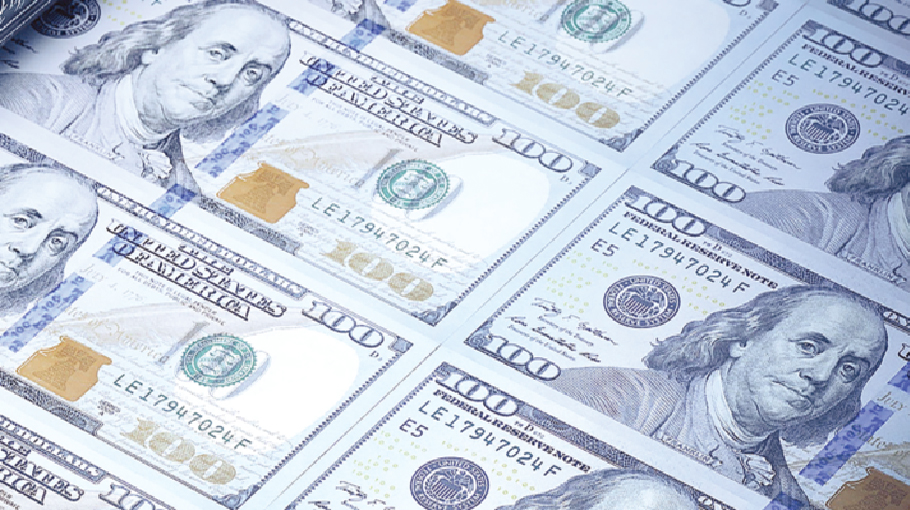Indomitable dollar
Makes global trade difficult

Global trade and commerce have become increasingly costly and difficult with the soaring dollar value in the foreign currency market. The countries across the world are confronting a changing geopolitical landscape that is challenging the traditional dominance of the West.
The emerging global economies centring BRICS are facing insurmountable difficulties in running trade and commerce and looking for an alternative. Though, the BRICS countries have been seeking to reduce their reliance on the dollar for over a decade—specially was struggling to introduce its money in the international market--and on the other hand, Western sanctions on Russia after Ukraine war have accelerated the process. That is why BRICS alliance countries are planning to float a new currency to settle international trade payments to challenge the global reserve status of the US dollar.
The economists are of the view that introducing new BRICS currency faces major hurdles before becoming a reality. Because, no single currency is possible in BRICS, neither RNB nor Rupee nor Rubble can come as a single currency to replace Dollar.
China is ramping up efforts to boost the yuan’s appeal as an alternative currency in international trade and as a reserve currency in the face of US dollar hegemony. From South America to the Middle East, nations are finding ways to sidestep the long-dominant American currency in lieu of China’s yuan.
However, while not negligible, these advances remain quite small when compared with the ubiquity of the US dollar, which is used in around 90 per cent of foreign exchange transactions around the world, according to the Bank for International Settlements, reports South China Monitoring Post. Nonetheless, the report further suggests that a growing number of countries have been dumping their US Treasury bills, increasing their gold reserves and settling bilateral trade in local currencies. In March of this year, the yuan became the most widely used currency for cross-border transactions in China, overtaking the dollar for the first time. And the official data reflects the fruits of Beijing’s efforts. Russia, Saudi Arabia, Brazil, Argentina, Bangladesh, Thailand, Iraq, Pakistan – these countries are reported to have been making headway in using the yuan for trade.Prior to the expansion of BRICS this August, India seemed to be the only country that has not shown interest
in the plans of launching a new currency. India’s External Affairs Minister, S. Jaishankar in a press conference held on Monday, 3rd July, 2023 said that India has no plans for a BRICS currency. He declared that India might back out from creating the new currency prior to this BRICS summit. Instead, India is focused on strengthening its national currency, the Rupee, and making Rupee stronger will be the top priority of the Indian government, Jaishankar had stated, reports Times of India. The report further reveals, China and India have been at odds for more than a decade now despite being together as members in BRICS. India is apparently worried that Beijing is using the platform of BRICS for imposing Chinese President Xi Jinping’s vision on the countries of the world by dethroning the US dollar & becoming a global economic & military superpower. Having said all that, the reality demands introducing an alternative currency with no delay. Multiple currencies may come into play for dethroning the king “Dollar”. United States of America and its allies are alert about these anti-dollar drives and actively working to protect dollar against growing Chinese economic and military might.
Countries across the globe naturally would do whatever is needed to protect their own markets and America is not an exception. For example, with a view to recovering lost American factories and manufacturing jobs, Donald Trump imposed tariffs on imported steel and aluminum with an enthusiasm not seen since the 19th century. Another example could be India’s External Affairs Minister S Jaishankar defending Russian oil purchase amid U.S pressure. Upholding the national interest, S Jaishankar said that it's his moral duty to ensure the best deal for India. He further said that New Delhi has been very honest and open about its position on Russian crude and the world needs to accept this reality. China’s president cited the need to “promote peaceful development of cross-strait relations” with Taiwan but stressed that his country should oppose “external forces” and pro-independence movements. China realized that they won’t go for war because of the global market expansion. Even if there exists a situation like war, the reality doesn’t support war. People still have not forgotten the scars of World War I & II. Most people don’t want war except the war machine producing factories. To keep the pace to continue in global market, Chinese commodity supply chain cannot afford to stop as their domestic market is largely dependent on Europe and America.
The US dollar has reigned with glory dominating global trade and capital flows for decades, however; an economic war has started between countries pushing de-dollarization and America. Although America and its allies are seriously active to stop this de-dollarization efforts, soon there is no alternative but to introduce multiple currencies to challenge the dominance of the dollar.




